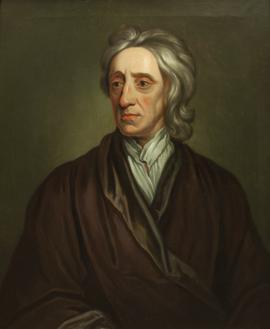COWLEY, ABRAHAM, seventh and posthumous child of Thomas Cowley, St. Michael Le Querne, London, citizen and stationer; b. 1618; adm.; Min. Can. 1630; KS; author, Poetical Blossoms, dedicated to his schoolmaster Lambert Osbaldeston (qv) and published 1633; while in College he also wrote Love’s Riddle, a pastoral comedy, not published until 1638; failed to obtain election to either university 1636; Trinity Coll. Cambridge, adm. pens. 21 Apr 1636, scholar (by dispensatory letter from King) 14 Jun 1637; his Latin play, Naufragium Joculare, was played before the University by members of Trinity Coll. 2 Feb 1638; BA 1639/40; MA 1643; Minor Fellow, Trinity Coll., from 30 Oct 1640; ejected by Parliamentary Visitors 1644 and went to Oxford, taking up residence in St. John’s Coll.; went abroad 1646; employed in diplomatic services by exiled Royalist court; returned to England as Royalist spy 1656; author, Miscellanies, 1656; MD Oxford 2 Dec 1657 (incorp. Cambridge 11 Jul 1664); withdrew to France, but returned at Restoration; applied for Mastership of Savoy 1661, unsuccessfully; one of original fellows of Royal Society; his works were first published in a collected form in 1668, when Several Discourses by way of Essays in Prose and Verse appeared for the first time; some hitherto unpublished Verses on the Happy Birth of the Duke of York are printed in the Elizabethan, v, 54-5, viii, 281; d. 28 Jul 1667, and buried in Poets’ Corner, Westminster Abbey. DNB.
Référentiel
Code
Note(s) sur la portée et contenu
Note(s) sur la source
- https://collections.westminster.org.uk/index.php/locations
Note(s) d'affichage
Termes hiérarchiques
Locations
- Terme spécifique 1, Little Dean's Yard
- Terme spécifique 13, Moreton Terrace
- Terme spécifique 14, Barton Street
- Terme spécifique 15, Moreton Terrace
- Terme spécifique 16, Vincent Square
- Terme spécifique 17, Dean's Yard
- Terme spécifique 17, Vincent Square
- Terme spécifique 18, Dean's Yard
- Terme spécifique 18, Great College Street
- Terme spécifique 18, Vincent Square
- Terme spécifique 19, Dean's Yard
- Terme spécifique 2, Barton Street
- Terme spécifique 2, Little Dean's Yard
- Terme spécifique 20, Dean's Yard
- Terme spécifique 20, Great College Street
- Terme spécifique 22, Great College Street
- Terme spécifique 22, Vincent Square
- Terme spécifique 23, Vincent Square
- Terme spécifique 26, Great College Street
- Terme spécifique 29, Great College Street
- Terme spécifique 29a, Great College Street
- Terme spécifique 3, Dean's Yard
- Terme spécifique 3, Little Dean's Yard
- Terme spécifique 4, Barton Street
- Terme spécifique 5, Barton Street
- Terme spécifique 5a, Dean's Yard
- Terme spécifique 6, Dean's Yard
- Terme spécifique 7-9, Dean Bradley Street
- Terme spécifique 7, Lord North Street
- Terme spécifique 8, Gayfere Street
- Terme spécifique Adrian Boult Building
- Terme spécifique Adrian Boult Music Centre
- Terme spécifique Armoury
- Terme spécifique Armoury Block
- Terme spécifique Ashburnham House
- Terme spécifique Barton Street
- Terme spécifique Boat House
- Terme spécifique Busby Library
- Terme spécifique Chapel
- Terme spécifique Church House
- Terme spécifique College Dormitory
- Terme spécifique College Garden
- Terme spécifique College Hall
- Terme spécifique Dean's Yard
- Terme spécifique Great College Street
- Terme spécifique Great Sanctuary
- Terme spécifique Grove Park
- Terme spécifique Gym
- Terme spécifique Liddell's Arch
- Terme spécifique Little Dean's Yard
- Terme spécifique Manoukian Music Centre
- Terme spécifique Millicent Fawcett Hall
- Terme spécifique Mother Dawson's
- Terme spécifique Nenthead House, Alston
- Terme spécifique Robert Hooke Science Centre
- Terme spécifique School
- Terme spécifique School Gateway
- Terme spécifique School House, Alston
- Terme spécifique Singleton's
- Terme spécifique Sports Centre
- Terme spécifique St Edward's House
- Terme spécifique Sutcliff's
- Terme spécifique Tothill Fields
- Terme spécifique Tothill Street
- Terme spécifique Tufton Street
- Terme spécifique Turles House
- Terme spécifique Under School
- Terme spécifique Vincent Square
- Terme spécifique Westminster Abbey
- Terme spécifique Weston Building
